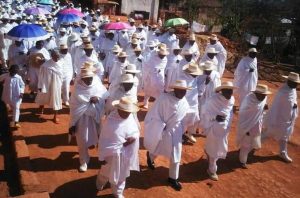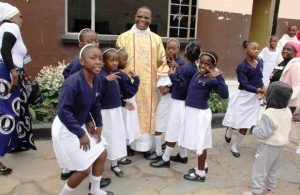“We appeal to the Congolese people to pay particular attention to the implementation of important milestones in the electoral calendar, including the convening of the electorate on the 23rd June 2018 and the beginning of the reception and preparation of candidacies on the 24th June 2018, and to ensure respect for the peaceful nature of public events”.
The most accurate diagnosis is that the many ills destroying the Democratic Republic of the Congo’ (DRC) nation stem from bad governance. Because of bad governance, the constitutionally required election has been delayed and corruption has become a culture. The justice system protects the powerful and the rich, armed groups increasing in number control immense space in some provinces, previously peaceful areas have seen serious bloodshed, the education system only deteriorates, the flow of refugees into neighboring nations and beyond continues, internal displacement of persons is the highest on the continent, and land grabbing has surpassed, according to Land Matrix, that of any other African nation.
On 19th March 2018, Fr. Donatien Nshole, Secretary General of the Catholic Bishops’ Conference in the DRC told the United Nations’ Security Council that the St. Sylvester agreement signed in December 2016 between the government and the opposition remains “a key factor in the organisation of a smooth transition” from Kabila’s regime. The accord called for power sharing between the parties of Kabila and the opposition, prior to the election that was to take place at the end of December 2017, in which Kabila would not be a candidate.
After the negotiations led by the former Togolese Prime Minister, Edem Kodjo under the African Union mandate, a second round of talks facilitated by the Catholic Bishops’ Conference started on the 8th December 2016, and led to the signing on the 31st December 2016, of the more inclusive St. Sylvester agreement, named after the Saint of the day in the Catholic Liturgical calendar. Among other stipulations, it called for the election in December 2017. Unfortunately, no election has occurred. Currently, voter enrollment is finished and the electoral law has been promulgated. However, the opposition has no trust in the electoral processes and has made calls to repeal and replace the electoral law. Some are demanding a transitional government without Kabila as President.
Many civil society groups have been pushing for change, and members have been jailed for speaking out. Their release, a priority in the struggle, is far overdue. On December 31st 2017, January 21st and February 25th, 2018, the Comité Laïc de Coordination (CLC), a lay group having the blessing of the Catholic Church, organised peaceful protests to demand, among other things, transparent, faire, free elections. After prayer, holding rosaries and crosses, they marched from parishes.
In a number of incidents, security forces dispersed the crowds from the streets and churches, using tear-gas. Among those beaten were Catholic priests and altar boys manning the front lines of the protests. Some reports say at least a dozen were killed and several wounded, with property damage in the thousands of dollars. Priests were further targeted by the government, with interrogations, arrests, and anonymous death threats.
This popular mobilisation by the Catholic Church stands out as a unifying effort in a country where communities are divided along ethnic and political lines and violence is sparked to maintain the status quo. Not in a long while have so many Congolese from many corners of the country taken part in such a national activity. The impact is still felt. Although the government lacks political will, citizens must continue to demand the respect of rule of law. This includes asking for elections and insisting that no change be made to the Constitution, especially as concerns the Presidential term limit (Article 70). Obviously, the ongoing denial of citizens’ right to mobilise and voice opinions is a serious violation of constitutional rights.
Recently Fr. André Masinganda, 1st Deputy Secretary General of CENCO (National Episcopal Conference of Congo), presented some recommendations to the government, the Independent Electoral Commission (CENI), the Supreme Council of the Judiciary, courts, political parties, civil society organisations and the international partners of the DRC, ahead of the presidential and parliamentary elections on the 23rd December.
“We appeal to the Congolese people to pay particular attention to the implementation of important milestones in the electoral calendar, including the convening of the electorate on 23rd June 2018 and the beginning of the reception and preparation of candidacies on 24th June 2018; and to ensure respect for the peaceful nature of public events”, said Fr. Masinganda. Among other recommendations, CENCO asked the authorities to restore the security conditions in the areas of the country that do not have them, in order to avoid a further postponement of the elections, and to guarantee the freedom of demonstration envisaged by the Constitution. (Bahati Jacques, is a Policy Analyst with Africa Faith and Justice Network based in Washington (USA).






